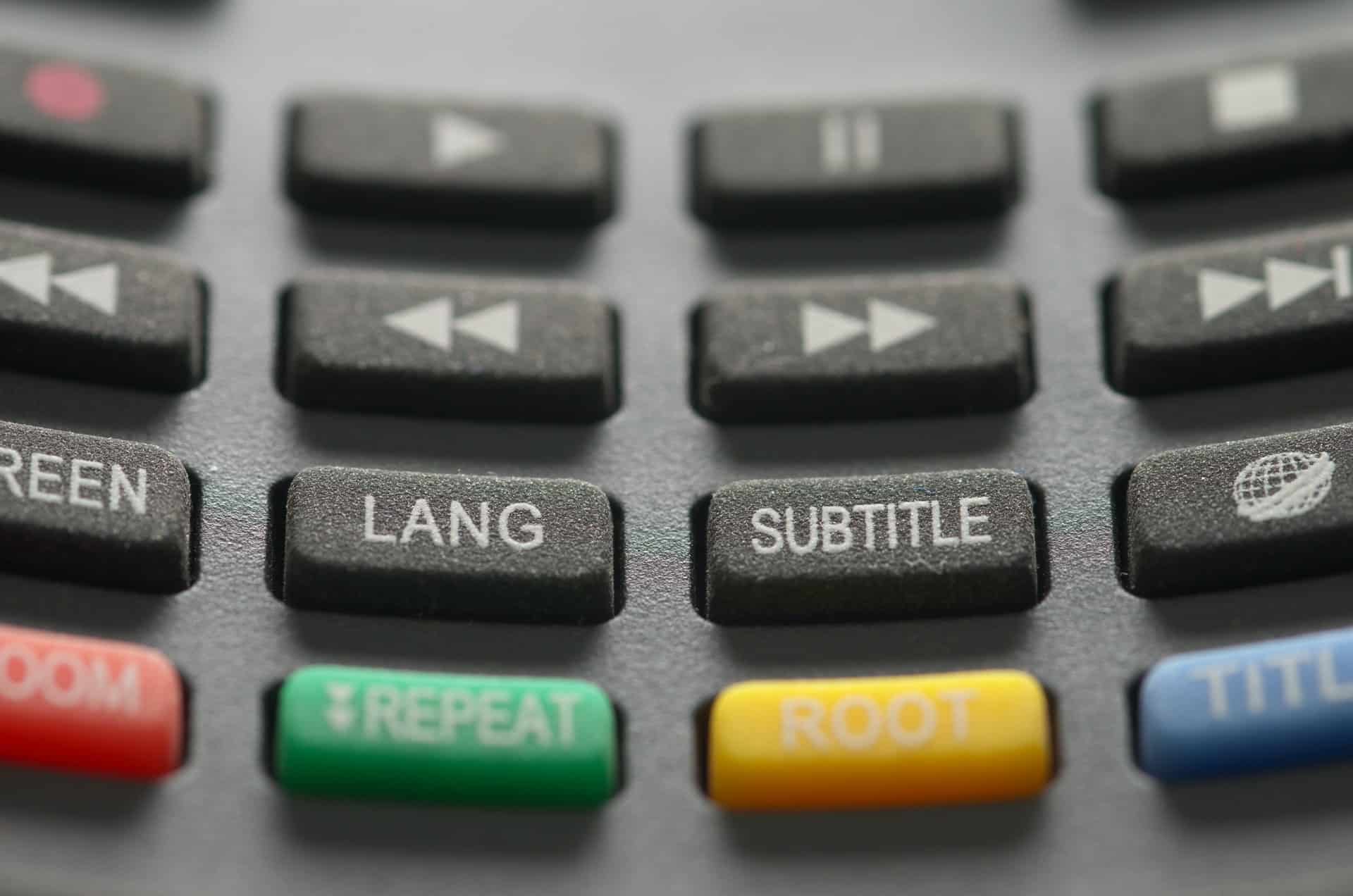Subtitles are vitally important for a range of reasons. Obviously, they are used by people with hearing difficulties in order to allow them to better understand whatever media they are watching. This is an essential use of subtitles.
However, it is not just people with hearing problems who use subtitles. Many people find it easier to focus on the words that are being said with subtitles, especially in loud settings. Subtitles also help people make notes if the content is educational or training-related. And, of course, subtitle translation services help make your content more accessible to the world, by having translated subtitles that are accessible in a range of target languages.
IMAGE: UNSPLASH
Who Translates Subtitles?
People who work on subtitles are professional linguists. Often these individuals will translate into a language that they speak natively, as in the language that they grew up speaking. They will also be fluent in the source language in order to make sure that they fully understand the context of what they are translating. While professional linguist requirements change from company to company, generally linguists will be highly practiced with years of experience in the translation industry.
This is, even more, the case for specialist subjects, such as where linguists have to translate subtitles for technical or medical seminars. In this case such professionals are well versed in the specialist language used within the field in order to limit any problems and provide the most accurate translation properly. On top of this, there are various translation certifications and qualifications that linguists can achieve.
Is It Hard To Translate Subtitles?
We have already discussed the skills and knowledge required for translating subtitles, so let’s talk a little about the workload. In transcription (the field of turning audio into text) it is generally considered that it takes four times longer to transcribe something than to watch it. That means that for every one hour of video, it will take four hours to transcribe it to make the original subtitles. It can take this long to translate the subtitles into a different language too – which just goes to show how skilled and detailed a job it is!
Youtube Captions My Videos In Multiple Languages. Why Would I Need A Professional?
It’s true that many computer programs now exist to translate and transcribe audio into a range of chosen languages. However, this is not an ideal solution by any means. To start, only certain languages are offered. In the case of less-common languages, you will almost certainly need to find a professional to do the translation. Also, while these computer programs seem good, they tend to have less accuracy than humans in two ways. A computer is less likely to get grammar and technical terms correct compared to a skilled and trained professional.
Computers are also much less likely to accurately translate tone and voice. The tone is the general feel of the subtitles. While a computer would translate the words ‘correctly’, a human will be able to ensure that the tone and flow of the words are correct.
This is particularly important in media with subtitles. We all know how distracting it can be when watching a dramatic scene in a TV show, only to have the tone ruined by clunky subtitles. Or the difficulty in trying to understand why the subtitles read as aggressive but the characters are acting friendly towards one another – these are some of the most common mistakes made by relying on computer transcription translations, and they can absolutely make people lose connection with what they are watching, which makes them more likely to turn it off.
What Media Needs Subtitle Translation?
Subtitle translations are appropriate for any media where you want to increase your audience. The global market is a huge range of potential viewers who can all enjoy your video properly. Maybe your company has made a new advertising video and needs to release it to other markets.
Maybe you make videos online and want to gain viewers in other countries. Even feature-length pieces can have their subtitles translated in order to make them more accessible to people who speak different languages. Ultimately, any and all video content can benefit from the services of professional subtitle translators.
Final thoughts
Hopefully, by now you’ve seen why your videos would be improved by professional subtitle translations. It is a quick and effective way to open up your video content to wider markets without having to re-film or re-record the entire piece – something which is not always a choice if you have had experts speaking on video seminars or if you have hired actors for the piece. Even if you have all languages of audio, it can be massively beneficial to have all those languages also shown as subtitles to help accessibility and make people mesh better with your videos.
IMAGE: UNSPLASH
If you are interested in even more geek-related articles and information from us here at Bit Rebels, then we have a lot to choose from.


COMMENTS